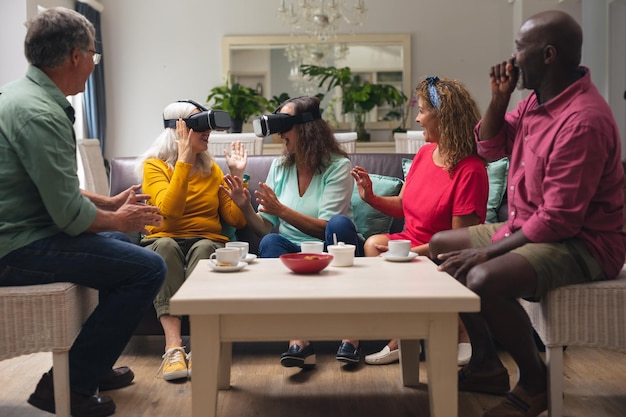Improve Your Memory: Brain Training Exercises and Techniques

Improve Your Memory: Brain Training Exercises and Cognitive Stimulation Techniques: Enhance memory through targeted exercises and stimulation that boost cognitive function, improving recall and retention skills for a sharper, more focused mind.
Do you ever walk into a room and forget why you’re there? Or struggle to recall names during introductions? Improve Your Memory: Brain Training Exercises and Cognitive Stimulation Techniques can help you sharpen your mind and unlock your cognitive potential.
Understanding Memory and Its Importance
Memory is more than just recalling facts; it’s the foundation of learning, decision-making, and overall cognitive function. As we age, it’s natural to experience some decline in memory, but this doesn’t mean we’re powerless. Understanding how our memory works allows us to take proactive steps.
By employing targeted training exercises and stimulation strategies, we can significantly enhance our ability to remember and retain information. It’s about more than just memorization; it’s about optimizing how our brains process and store memories.
The Different Types of Memory
Memory isn’t a monolithic entity; it comes in various forms, each serving a different purpose and utilizing distinct brain regions. Knowing these types can help us identify areas to target for improvement.
- Sensory Memory: The briefest form, holding sensory information for a few seconds.
- Short-Term Memory: Holding information temporarily, like a phone number before you dial it.
- Long-Term Memory: Storing information for extended periods, from days to years.
- Working Memory: Actively holding and manipulating information, crucial for complex tasks.
The Impact of Aging on Memory
Aging can indeed bring about changes in our cognitive abilities. While memory lapses can be a natural part of getting older, understanding these shifts can inform proactive strategies to nurture and preserve cognitive health, empowering us with resilience and adaptability as we navigate the journey of aging.

Several factors can contribute to these changes, including reduced blood flow to the brain, decreased neurotransmitter activity, and the accumulation of oxidative stress. However, proactive measures can mitigate most of these issues.
In summary, understanding memory’s various forms and the impact of aging on our cognitive abilities is crucial. By identifying the specific types of memory that need attention, we can tailor our training and stimulation techniques accordingly.
Brain Training Exercises to Sharpen Memory
Brain training exercises are like workouts for your mind. They’re designed to challenge different cognitive functions, including memory, attention, and processing speed. These exercises help create new neural pathways and strengthen existing ones.
By incorporating such activities into our daily routines, we can cultivate mental resilience, enhance cognitive agility, and nurture the ongoing vitality of our minds. It’s about more than just solving problems; it’s about cultivating a mindset of lifelong learning and intellectual curiosity.
Specific Exercises and How They Help
A range of brain training exercises are available, each targeting different aspects of memory and cognitive function. Tailoring these activities to your specific needs can yield the best results.
- Dual N-Back: A game that challenges working memory by requiring you to remember sequences of visual and auditory stimuli.
- Sudoku and Crossword Puzzles: Engaging your problem-solving skills and memory recall.
- Lumosity: A platform offering a variety of brain training games designed by neuroscientists.
Tips for Effective Brain Training
To maximize the benefits of brain training, it’s essential to approach it strategically. Consistency, variety, and personalization are key.
Make brain training a regular part of your routine. Even short, daily sessions can yield significant results. Choose exercises that you enjoy and that challenge you appropriately. If an exercise becomes too easy, increase the difficulty or try something new. Keep your mind sharp by engaging in different challenges consistently.

In conclusion, integrating the aforementioned brain training exercises into our daily routines can remarkably catalyze our mental resilience, heighten cognitive versatility, and nurture the continuous vitality of our minds. This proactive strategy empowers us to defy the confines of limitations and instead embrace a path fueled by endless growth and intellectual expansion.
Cognitive Stimulation Techniques for Memory Enhancement
Cognitive stimulation involves engaging in activities that challenge your brain and promote cognitive health. Unlike structured brain training exercises, cognitive stimulation is often integrated into real-life activities, making it more enjoyable and sustainable.
By weaving such activities into our daily routines, we can invigorate our cognitive capabilities, heighten our mental resilience, and sustain overall brain well-being. It’s about embracing a mindset of lifelong learning and intellectual curiosity.
The Power of Lifelong Learning
Lifelong learning is one of the most effective ways to stimulate your brain. When you’re constantly learning new things, your brain is actively creating new neural connections.
Whether it’s language acquisition, mastering a musical instrument, or delving into a new academic subject, each endeavor engages diverse cognitive faculties, promoting enhanced cognitive capabilities and resilience. These activities can help with learning retention.
Creative Pursuits and Memory
Engaging in creative activities is another excellent form of cognitive stimulation. Creative pursuits require you to think in new ways, problem-solve, and express yourself, all of which are beneficial for brain health.
Whether it’s painting, writing, playing a musical instrument, or gardening, creative pursuits offer a potent means of nurturing cognitive health. These experiences are essential to improve your memory.
Social Activities and Cognitive Health
Social interaction is often underestimated as a form of cognitive stimulation. Engaging in conversations, participating in group activities, and maintaining social connections can all contribute to cognitive health.
Social interactions provide opportunities for mental stimulation, emotional support, and reduced stress. It involves active listening, understanding different perspectives, and engaging in meaningful dialogue.
In conclusion, by harnessing the potency of lifelong learning, immersing ourselves in creative endeavors, and cherishing social engagement, we can actively nurture our cognitive resilience, fortify synaptic connections, and foster overall brain health. This holistic approach empowers us to embrace a journey of endless intellectual and emotional enrichment.
Lifestyle Adjustments for Better Memory
Beyond specific exercises and stimulation techniques, lifestyle adjustments play a crucial role in supporting memory and cognitive function. Simple changes to your daily habits can have a significant impact on your brain health.
By embracing these holistic modifications, we can empower ourselves to unlock our cognitive potential, heighten our mental resilience, and cultivate a life flourishing with vitality and clarity. Small changes frequently can make a big difference.
The Importance of Sleep
Sleep is essential for memory consolidation. During sleep, your brain processes and stores memories, making it easier to recall information later. Aim for 7-8 hours of quality sleep each night.
Establishing a consistent sleep schedule, creating a relaxing bedtime routine, and optimizing your sleep environment can all contribute to better sleep quality. Make sleep a priority.
The Role of Diet and Nutrition
What you eat has a direct impact on your brain health. Certain nutrients are particularly important for memory and cognitive function. A Mediterranean diet, rich in fruits, vegetables, fish, and olive oil, has been linked to better cognitive outcomes.
Additionally, incorporating foods rich in antioxidants, such as berries and leafy greens, can help protect your brain from oxidative stress. Hydration is also essential for brain function.
The Benefits of Regular Physical Exercise
Physical exercise isn’t just good for your body; it’s also beneficial for your brain. Regular exercise increases blood flow to the brain, which can improve cognitive function and reduce the risk of cognitive decline.
Aim for at least 30 minutes of moderate-intensity exercise most days of the week. Activities like walking, swimming, and cycling are all great options. You’ll improve mental performance over time.
To summarize, incorporating these lifestyle modifications into our daily lives provides a means of nurturing our cognitive abilities, heightening mental acuity, and safeguarding the enduring health and vitality of our brains. This strategic approach offers a means of optimizing our cognitive resources and enhancing our overall well-being.
Technology-Assisted Memory Aids
In today’s digital age, technology offers a plethora of tools and apps designed to support and enhance memory. These tools can be particularly helpful for individuals experiencing memory challenges or simply looking to boost their cognitive abilities.
These innovative solutions provide avenues for enhancing mental agility, optimizing cognitive performance, and seamlessly integrating strategies to support memory enhancement into our daily routines. It’s about finding the perfect blend of technology and brainpower.
Memory Apps and Software
Numerous apps and software programs can help you train your memory and track your cognitive progress. Apps like Elevate, Peak, and Memrise offer a variety of brain training games and exercises.
These apps can provide personalized training programs and track your progress over time, allowing you to see how much you’re improving. They leverage technology to focus on specific areas to improve your memory.
Digital Calendars and Reminders
Digital calendars and रिमाइंडर apps are invaluable tools for managing tasks, appointments, and reminders. These tools help you stay organized and ensure you don’t forget important events or deadlines.
Setting रिमाइंडर for tasks and appointments can significantly reduce cognitive load and free up mental space for other activities. Utilize any tool that helps you stay organized.
Voice Assistants and Smart Devices
Voice assistants like Siri, Alexa, and Google Assistant can be used to set रिमाइंडर, take notes, and answer questions, providing valuable support for memory and cognitive function.
These devices can be particularly helpful for individuals with memory challenges, allowing them to rely on technology for quick reminders and information retrieval. Smart devices are a great aid for people of all ages.
In short, by integrating these tech-assisted memory aids into our daily lives, we can maximize cognitive function. These tools act as cognitive allies, assisting us in handling day-to-day duties and enhancing our general cognitive performance. Embrace the strength of technology to unlock your cognitive potential and flourish in an environment characterized by perpetual creativity and knowledge.
When to Seek Professional Help
While various strategies can help improve memory, it’s important to recognize when memory problems may indicate a more serious underlying issue. Knowing when to seek professional help can ensure you receive the appropriate diagnosis and treatment.
Ensuring prompt medical treatment empowers individuals to receive accurate diagnoses, suitable interventions, and assistance for any underlying health issues that may occur. Addressing any health-related issues quickly is incredibly important.
Recognizing Signs of Memory Decline
Differentiating between normal age-related memory lapses and more significant memory decline is crucial. Persistent memory problems that interfere with daily life may be cause for concern.
Signs of memory decline may include difficulty remembering recently learned information, asking the same questions repeatedly, getting lost in familiar places, and experiencing changes in mood or personality. Pay attention to these points.
Consulting with Healthcare Professionals
If you’re concerned about your memory or cognitive function, it’s important to consult with healthcare professionals. A primary care physician can conduct an initial assessment and provide рекомендации for further evaluation.
Neurologists, geriatricians, and neuropsychologists are specialists who can assess cognitive function and diagnose memory-related conditions. These different doctors and specialists serve different purposes and can work together to help.
Available Treatments and Therapies
Depending on the underlying cause of your memory problems, a range of treatments and therapies may be available. Medications, cognitive rehabilitation, and lifestyle interventions may be recommended.
Early diagnosis and intervention can significantly improve outcomes for individuals with memory-related conditions. Don’t delay if you start to notice serious issues with your memory.
To summarize, being attentive to our cognitive well-being, recognizing signs of memory decline, and seeking advice from healthcare experts are critical steps in preserving cognitive health and ensuring timely care when required. Taking action now to take care of your memory can make a big difference in the long run.
| Key Point | Brief Description |
|---|---|
| 🧠 Brain Training | Exercises like Dual N-Back and Sudoku that challenge cognitive functions. |
| 📚 Lifelong Learning | Continuously learning new skills or subjects to stimulate brain activity. |
| 😴 Quality Sleep | Aim for 7-8 hours of sleep per night to help memory consolidation. |
| 🍎 Healthy Diet | Eat nutritious foods and stay hydrated. |
Frequently Asked Questions
▼
Try memorizing shopping lists, doing crossword puzzles, or playing memory games like “Concentration.” These activities exercise your recall abilities.
▼
Yes, a balanced diet rich in antioxidants, omega-3 fatty acids, and vitamins can boost brain health and improve memory functions significantly.
▼
Sleep is crucial for memory consolidation. During sleep, the brain processes and stores memories, making it easier to recall them later. Aim for 7-8 hours nightly.
▼
Certainly! Apps like Lumosity, Elevate, and Memrise offer various brain-training games and exercises designed to enhance memory and cognitive functions.
▼
Consult a doctor if you experience persistent memory problems that interfere with daily life, like forgetting familiar routes or struggling to remember important information.
Conclusion
Improving memory is an ongoing process that requires dedication and a proactive approach. By incorporating brain training exercises, cognitive stimulation techniques, and lifestyle adjustments into your daily routine, you can significantly enhance your memory and cognitive function, leading to a more fulfilling and mentally sharp life.
